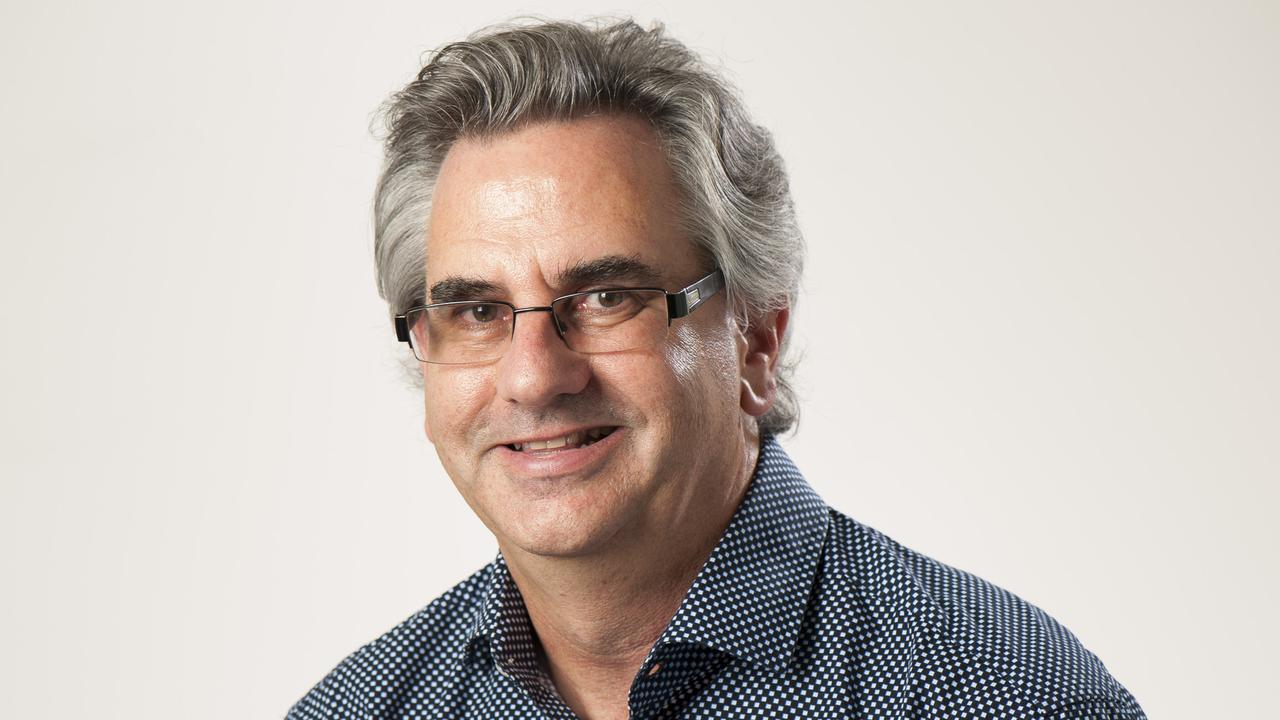STEM experts teach the next generation
Teach for Australia brings STEM professionals into classrooms to share their passion and expertise with the next generation.

Federal Education Minister Simon Birmingham has called for every Australian high school to employ a science, technology, engineering and maths specialist teacher.
He’s right. A quarter or more of high school mathematics classes are taught by teachers not trained in mathematics.
Science is little better. No wonder only half of Year 12 students study science — it is hard to enthuse students about STEM when teachers are not knowledgeable or passionate about it themselves.
The irony is not lost that the generations now most savvy and heavy in their use of technology are increasingly less likely to understand the mathematical and physical properties that underpin its creation.
And with less enthusiasm and focus in schools upstream, fewer university students are studying STEM subjects. Sceptics have questioned whether Birmingham’s goal is achievable within the next five to 10 years. But one thing is clear — if we rely on universities to produce more STEM-ready teachers, we could be in for a much longer wait.
Fortunately, there is an alternative. STEM professionals — be they financial whizzes or laboratory geniuses — could learn to become teachers much in the same way that surgeons learn to operate: by intense supervision with expert mentors. STEM professionals, working in schools and receiving plenty of feedback from skilled teachers, could be fast-tracked into the teaching profession.
Of course, being a teacher isn’t for everyone. Excelling in a laboratory doesn’t necessarily translate to being effective in a classroom. That’s why at Teach For Australia we assess applicants into our program across eight core competencies and mindsets that evidence shows underpin effective teaching.
These include the ability to communicate complex subject matter; planning and organisation skills; leadership; humility; problem-solving ability; willingness to engage in ongoing evaluation; and, perhaps most important, resilience. Life experience enhances many of these competencies; even more reason to target STEM professionals.
As an employment-based pathway into teaching, Teach For Australia has had success in bringing STEM specialists into classrooms. We have found that putting theoretical learnings into practice in a real classroom setting often suits those with STEM backgrounds particularly well, while reducing the opportunity costs of training that are a barrier for those with a high earning potential.
A variety of so many inspiring individuals have practised their passion before passing it on to the next generation through our program.
David Hosken was a research scientist and atmospheric physicist involved in the landmark discovery of gravitational waves that was awarded the Nobel Prize before he became a science teacher. Now he uses his first-hand experience to show his students how science can take them to exciting places, putting previously unused school laboratory equipment to use in the process.
Alistair Harkness worked as an engineer in a big multinational firm but found the lack of autonomy, mastery or social purpose in his role uninspiring. Harkness has been teaching for four years through Teach For Australia and recently co-authored the Victorian Certificate of Education physics textbook. He now is engineering the minds of the next generation, at scale.
Ying Qin worked in investment banking for five years before changing careers, driven to achieve a different kind of return on her investment. Her students are doing long division and differential equations with purpose, and she can’t imagine doing anything else.
With more than 9000 schools in Australia, and close to four million young and inquisitive students, we need more people such as Hosken, Harkness and Qin to join the ranks and share their skills and their passion with the next generation. We need to help them master the best pedagogical approaches to maximise student joy and learning, and to ensure their classrooms are resourced with the tools necessary to get the job done.
Chief Scientist Alan Finkel said last week that we had a “fundamental duty” to ensure that students were “taught by teachers trained as experts in that content, with all the status and resources and professional development that we would demand in any other expert occupation”.
To discharge Finkel’s duty, Australia would do well to embrace non-traditional employment-based teaching programs that attract STEM professionals into teaching and support them as they become highly effective and inspiring teachers. This, in turn, will result in better-prepared students. Some will become scientists and others will become teachers themselves. In both cases, the nation wins.
Melodie Potts Rosevear is the founder and chief executive of Teach For Australia, a non-profit organisation whose mission is to recruit Australia’s future leaders into teaching and inspire, connect, and empower them towards a lifetime of action for educational equity. Applications are open for all STEM professionals.



To join the conversation, please log in. Don't have an account? Register
Join the conversation, you are commenting as Logout